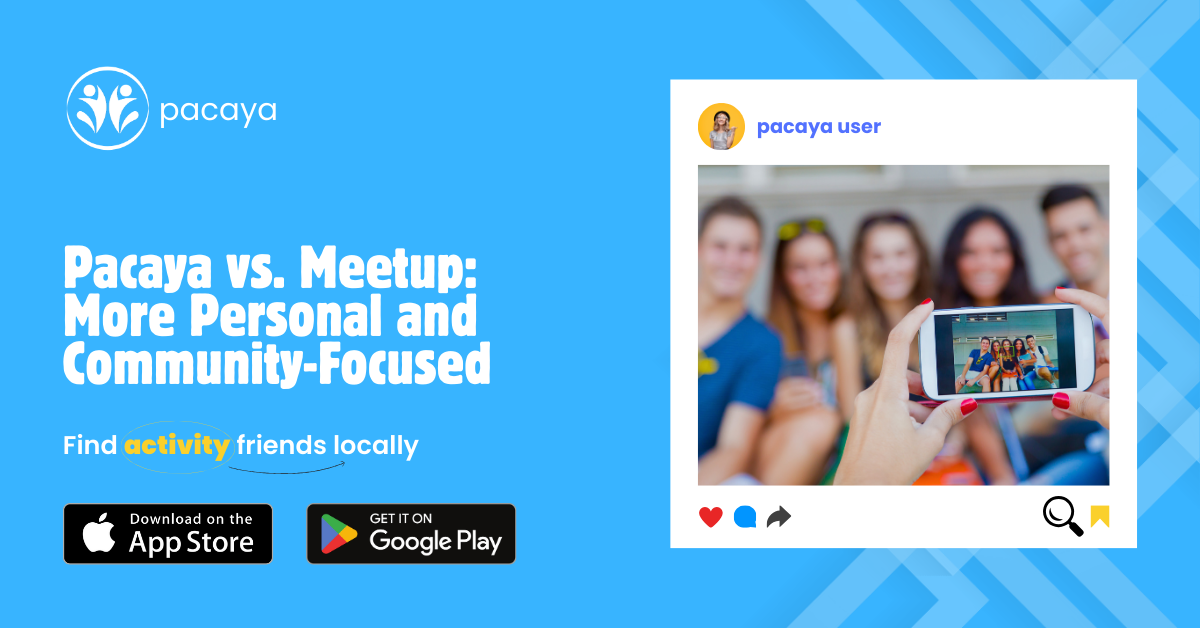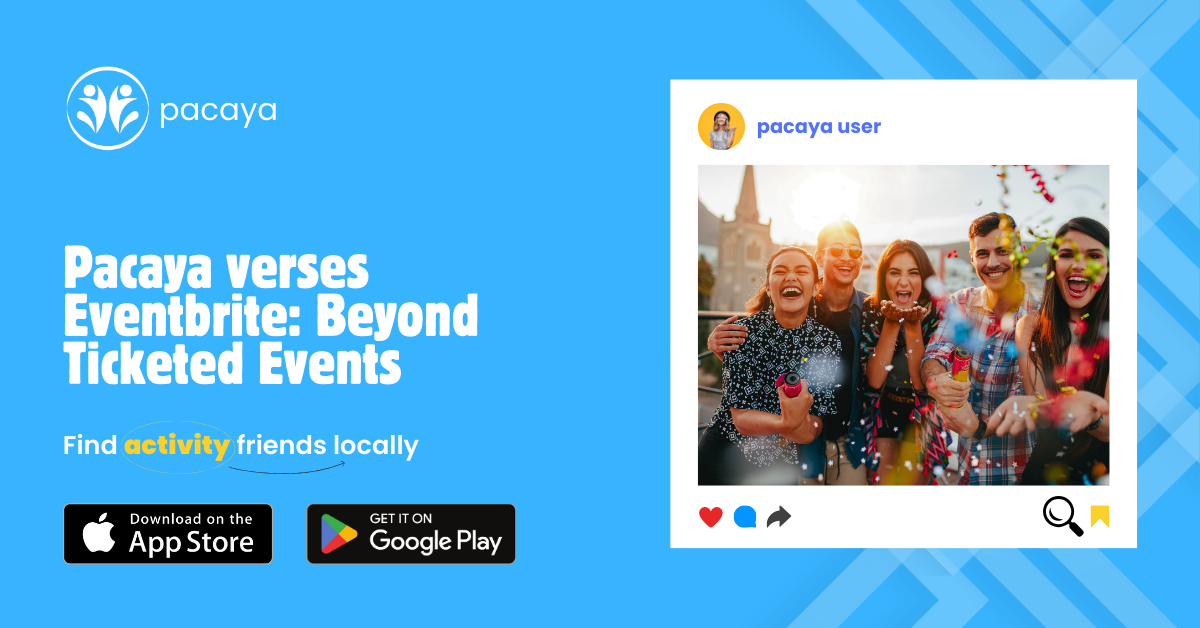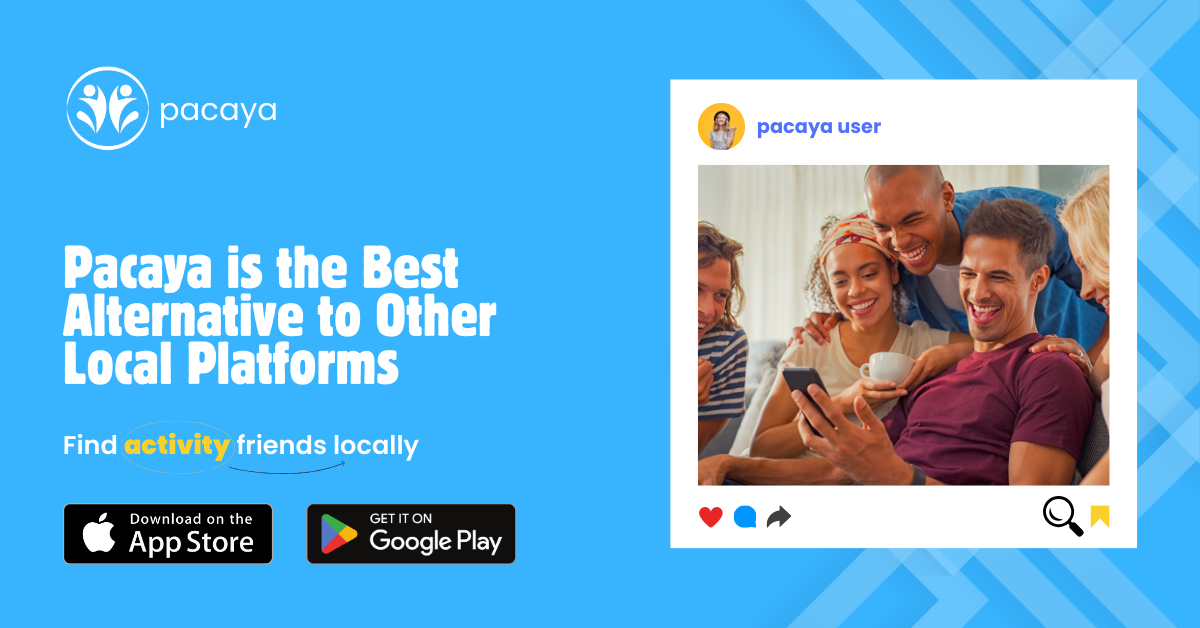Pacaya App vs Meetup: More Personal and Community-Focused
When it comes to building meaningful connections and engaging with your local community, Pacaya offers a distinct advantage over Meetup. While both platforms are designed to bring people together, Pacaya’s approach is more personal, community-driven, and tailored to fostering genuine relationships. Here’s a closer look at how Pacaya stands out as a more effective tool for creating lasting connections.
Local Connections: Creating Genuine Relationships
Meetup’s Approach:
Meetup has long been a popular platform for organizing events that cater to a wide range of interests, from professional networking to hobbyist gatherings. However, Meetup often focuses on larger events that can feel impersonal and overwhelming, especially for those who are new to a community or prefer smaller, more intimate settings. The emphasis on scale can sometimes lead to a less personalized experience, where attendees may struggle to form meaningful connections amidst the crowd.
Pacaya’s Advantage:
Pacaya, on the other hand, prioritizes smaller, more intimate gatherings that are designed to foster deeper connections among participants. By focusing on local, community-based events, Pacaya creates an environment where relationships can thrive. Whether it’s a casual coffee meet-up, a neighborhood book club, or a small group hike, Pacaya encourages interactions that go beyond surface-level introductions. This emphasis on local connections helps users build genuine friendships and a stronger sense of belonging within their community.
Real-Life Example:
Imagine moving to a new city and using Meetup to attend a large networking event with hundreds of attendees. While you might exchange a few business cards, the sheer size of the event can make it difficult to form lasting connections. In contrast, with Pacaya, you might join a small group of locals for a weekend hike. The smaller setting allows for more meaningful conversations, shared experiences, and the opportunity to form real friendships that extend beyond the event itself.
Diverse Activities: Catering to All Interests
Meetup’s Focus:
Meetup offers a wide array of events, but these are often centered around specific interest groups that may not always cater to diverse or niche activities. While you can find groups for common interests like technology, fitness, or entrepreneurship, the platform’s structure may limit the variety of activities available, especially in smaller communities or less populated areas.
Pacaya’s Broader Range:
Pacaya expands on the concept of community engagement by offering a broader range of activities that cater to diverse interests and hobbies. From skill-sharing workshops and cultural events to social outings and recreational activities, Pacaya ensures there’s something for everyone. Whether you’re looking to learn a new language, join a cooking class, participate in a local art exhibit, or simply meet others for a casual brunch, Pacaya provides the flexibility to explore a wide variety of interests.
Inclusivity and Accessibility:
Pacaya’s commitment to inclusivity means that the platform actively encourages the creation and participation in events that cater to all demographics, including age, gender, cultural background, and interests. This ensures that everyone, regardless of their preferences, can find activities that resonate with them and meet others who share their passions.
Real-Life Example:
If you’re interested in niche activities, such as urban gardening or mindfulness meditation, you might find limited options on Meetup, particularly if you’re not in a major city. However, Pacaya’s diverse activity offerings mean that even in smaller communities, you can find or create groups that cater to your specific interests, making it easier to connect with like-minded individuals.
Seamless Integration: Connecting with Local Hotspots
Meetup’s Limitations:
While Meetup is effective at organizing events, it often requires users to rely on external resources to find venues, coordinate logistics, and manage their activities. This can create extra work for event organizers and attendees, who must navigate multiple platforms to fully engage with their community.
Pacaya’s Integration:
Pacaya simplifies the process by seamlessly integrating local hotspots into its platform. This means that whether you’re organizing or attending an event, you can easily discover nearby cafes, parks, or event venues that are ideal for your gathering. Pacaya’s integration with local businesses and public spaces not only makes event planning easier but also enhances the overall experience by encouraging users to explore and engage with their neighborhood.
Supporting Local Businesses:
This integration also supports local businesses by directing foot traffic to cafes, restaurants, and venues that host Pacaya events. By encouraging users to meet in these spaces, Pacaya fosters a symbiotic relationship between community members and local businesses, contributing to the economic and social vitality of the neighborhood.
Real-Life Example:
Suppose you want to host a knitting club meet-up. On Meetup, you might need to search for a suitable venue separately, coordinate with the location, and manage RSVPs through different channels. With Pacaya, you can browse local cafes or community centers that are already integrated into the platform, see their availability, and book your event all in one place. This seamless integration makes it easier to focus on what matters—connecting with others—while also discovering new local spots.
Why Pacaya is the Better Choice
Pacaya’s emphasis on smaller, more intimate gatherings, diverse activities, and seamless integration with local hotspots sets it apart from Meetup. By prioritizing genuine relationships, inclusivity, and ease of use, Pacaya offers a more personal and community-focused alternative that truly enhances your local engagement.
Whether you’re looking to build deep connections, explore new hobbies, or simply discover what your neighborhood has to offer, Pacaya provides the tools and opportunities to make it happen. It’s more than just a platform—it’s a gateway to a richer, more connected community life.


